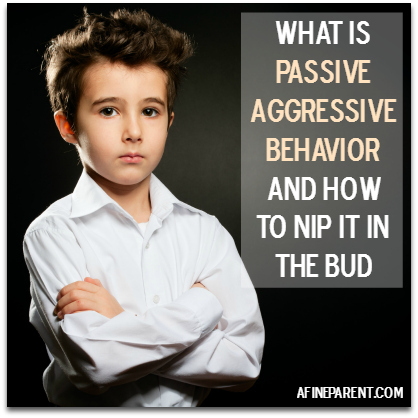 “Jacob! Come here, please!”
“Jacob! Come here, please!”
A few minutes pass…
“Jacob! I need you to come here, please!”
A few more minutes pass… and your patience begins to fade.
“Jacob! I said for you to come here!”
Jacob finally comes out of his room and graces you with his presence. Instead of greeting you with a pleasant, “What’s up, Mom?” you get a, “What, Mom?” In an extremely sullen tone.
Your blood begins to boil! You realize these annoyed tones and snide remarks are becoming the new normal in your relationship.
You begin to ask yourself, “What have I done to him that makes him want to treat me this way?”
A simple answer is you have done nothing in this particular moment.
A more detailed answer is your child is angry. He or she may not even know why they are so angry. They are just angry.
That is where you come in. As an adult, you have to recognize and name the problem. ‘Name it to tame it’ as they say.
And in this particular case, the problem’s name is Passive Aggressive Behavior.
Passive-aggressive behavior is the indirect expression of hostility, such as through procrastination, stubbornness, sullen behavior, or deliberate or repeated failure to accomplish requested tasks for which one is (often explicitly) responsible.
Your child does not have to fall victim to this nasty little habit of showing passive aggressive behavior. They can cope and understand what is going on within themselves. They can learn to express what is going on inside of them. And grow up to be mature and emotionally intelligent adults… with your help!
Here is how you help your child give passive aggressive behavior the boot!
Look In The Mirror
 It is so important as parents that we always do a self-examination before we start ‘tweaking’ our kids. A lot of times we’ll point our parental finger at them without realizing that they picked up that particular behavior from us!
It is so important as parents that we always do a self-examination before we start ‘tweaking’ our kids. A lot of times we’ll point our parental finger at them without realizing that they picked up that particular behavior from us!
Very few things are harder to hear as a parent than when we ask our kids, “Where did you learn that?”
And with all of their innocence, they say, “From you!”
Talk about taking a swift kick to your gut! Us, the ones that have cared for them since birth. The parents that read every parenting book one can imagine! The ones that keep researching and seeking out the best parenting options because we care about our kids!
Yet, we are also the same parents that are human. We make mistakes. We slip up and say things we shouldn’t. We act in certain ways that we often wish we wouldn’t.
For this reason, it is vital that we take a long look at ourselves before we start poking into our kids’ thoughts. We need to ask ourselves, “Do we display passive aggressive behavior?”
Often, passive aggressive behavior is a learned trait. When our kids get angry, they act on what they’ve seen.
So, when Mom and Dad have a “discussion” and Mom gets mad, does she talk things out with Dad, or does she fluff up her feathers and give Dad the silent treatment besides a few snide remarks in passing until she gets her way?
Does Dad drag his feet on his ‘honey-do’ list when he is irritated with Mom?
Don’t get me wrong. A little bit of conflict in marriage is healthy. It is even healthy to show these things to our children. They will face conflict in life… no doubt. It is important we are real with them so they can see and learn the correct ways to handle conflict.
As parents, we have to do a self-examination to see how we actually handle conflict. Are we actually walking the walk?
If you can have an honest moment with yourself and see your downfalls before speaking to your child, you can give them prime instances of areas that you need to improve on within yourself.
Pointing out our faults often lets our kids know that we are human. We are going to make mistakes and at times, they need to look at our behavior and decide for themselves if we are acting in a right or wrong fashion.
Talking to our kids about their emotions and how they are handling them is a lot easier when we can see how we are actually handling ours. It also gives us goals to work towards and areas to improve upon within ourselves.
Know What You Are Dealing With
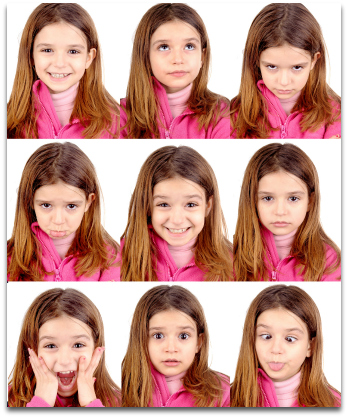 I’ll be honest, when I first encountered passive aggressive behavior within my child, I didn’t pinpoint it as passive aggressive behavior. I honestly thought he was just going through a “phase.”
I’ll be honest, when I first encountered passive aggressive behavior within my child, I didn’t pinpoint it as passive aggressive behavior. I honestly thought he was just going through a “phase.”
Kids go through quite a few phases in their childhood. They go through the attachment phase where Mom or Dad can’t leave without them sobbing uncontrollably; they go through phases with TV shows and characters they love; they go through phases with certain foods.
Passive aggressive behavior, however, is not a phase. It is not something that will just pass in time.
It is a habit.
It is a way your child has learnt to expressing themselves. It is actually a control mechanism on their part.
James Lehman, at Empowering Parents actually refers to passive aggressive behavior as passive resistance and defines it as:
Passive resistance is when kids learn to develop power over you by resisting you. In fact, it’s the opposite of aggression: instead of threatening or yelling at you, a passive-aggressive child simply doesn’t answer you. He just walks into the house, goes upstairs and doesn’t say anything. When you call up to his room, he pretends not to hear you; instead, he makes you come upstairs. Understand that this is one way for a child to have power, and many become experts at this kind of passive-aggressive behavior.
Another blatant definition of passive aggressive behavior as stated by Psychology Today,
Passive aggression is defined as a deliberate and masked way of expressing feelings of anger (Long, Long & Whitson, 2009). The goal of the passive aggressive person is to covertly get back at another person and, in doing so, cause that person to blatantly act out the anger that the passive aggressive person is so studiously hiding.
When I read this, I knew this is what I was dealing with. Just as I discussed in the opening of this article, I would call and call my child’s name to get him to come out of his room for whatever reason. He wouldn’t come out until I would either knock on his door and see why he wasn’t answering me or until he was done doing whatever task that had occupied him at the time, and he decided that he would come see what I wanted.
There were also times my son would push my buttons until I thought they’d snap off. When I could feel my blood pressure rise and knew my face was cherry red, he’d look at me and say, “Are you mad now? Good!”
This is not a healthy relationship. This is not a healthy lifestyle for our children. These behaviors will carry over with them into friendships, marriage, and working relationships.
James Lehman goes on to say,
For one reason or another, their child develops a way of avoiding feelings or confronting anger. They don’t learn how to talk about conflicts, frustrations, hostility and the things they think are unfair. Sadly, this pattern will often continue to develop in a person’s life through adulthood—and make no mistake, it causes serious problems for them.
Those thoughts are what caught my attention and helped me to decide that as his parent I was going to help him overcome this.
Not just because I was his parent, and he needed to have more respect for me than what he was showing (though respect is of huge importance in our home.) It was more so for the fact that I didn’t want him to struggle in his relationships for the rest of his life. I didn’t want him to bring hurt to himself and others because of this habit he hid behind as a child.
Passive aggressive behavior is a serious issue. After you define it and realize what you are up against, it is time to grit your teeth, attack the behavior with as much positivity as you can muster, and pull love from the deepest depths of your heart!
Figure Out Where Your Child Is At
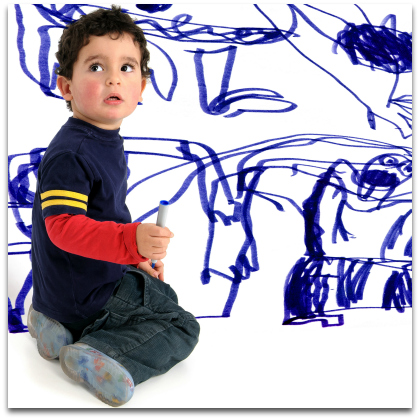 According to Psychology Today, there are five levels of passive aggressive behavior.
According to Psychology Today, there are five levels of passive aggressive behavior.
Level one is temporary compliance. This is the most common form of passive aggressive behavior in children. It is when you ask your child to do a simple task such as, “Come to the kitchen please.” Your child may say, “Okay!” but in reality, will delay their action until later. So, for instance, if they are playing a video game, they may have no intention of coming to the kitchen until they finish that level but will agree verbally anyway to avoid confrontation.
Level two is intentional inefficiency. This is when you ask your child to do something, and they leave the job halfway done though they are capable of completing the task. A prime example of this level would be if your child does his homework, but you couldn’t read it because they just didn’t put in the effort to write legibly.
Level three is letting a problem escalate. This is where your child chooses to nonchalantly ignore a potential problem letting it escalate. An example of this may be an older child who simply watches a younger child who draws all over the walls with a permanent marker, or rips Mom’s work clothes with a pair of scissors. The older child knows this is not right but believes that the sibling and/or the parent “deserves” the fall out.
Level four is hidden but conscious revenge. This is where the child intentionally wants to get even but does not do it openly. An example of this is a child who sneakily destroys his brother’s homework, so the brother gets in trouble at school the next day. Or hides her parent’s car keys when they are already running late.
Level five is self-depreciation. This is when the child is literally willing to hurt themselves or severely damage their future just to get back at someone. A prime example of this is a child misbehaving to a point that they might get thrown out of school. This ultimately impacts their school record but really, all they care about is the embarrassment their parents have to face.
When I first realized that we were facing passive aggressive behavior with our son, he was sitting at level three. It has taken a lot of work to help him deal with this behavior but knowing your starting point is vital in the process of overcoming it.
Don’t Talk. Listen.
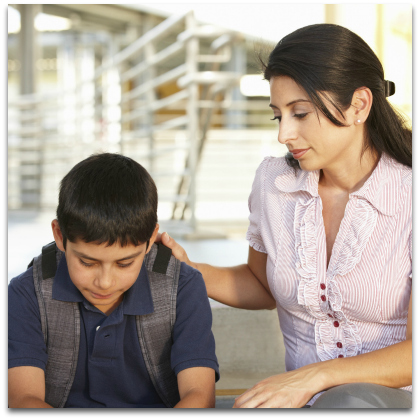 As parents we have a tendency to lecture. I know I do! You want to share all of the wisdom you have gained through all of your years of life. That is great!
As parents we have a tendency to lecture. I know I do! You want to share all of the wisdom you have gained through all of your years of life. That is great!
We are parents and it is our job to help guide our children. But there is a time and place for everything and in these moments of battling passive aggressive behavior — that isn’t the time.
When your child has a moment of direct defiance; you catch them trying to manipulate you in a situation; or they blatantly give you an “Are you mad yet? Good!” moment… those are the times you need to listen.
I know it will be hard but really, in those moments where you catch direct passive aggressive behavior, all you should do is ask a few direct questions to encourage your child to express their feelings.
You can ask:
Why are you so angry right now?
Why are you trying to get me to express anger towards you?
Why are you acting this way?
I have learned in my own experience, do not accept ‘I don’t know’ as an answer. They may not know on a surface level, and it may take some time before the real reasons begin to surface, but kids are capable of reflecting.
We experienced this with my middle child this summer. He was practicing passive aggressive behavior with his older brother. We began to notice he was eating a lot! I thought he was getting ready to hit a growth spurt, so I didn’t think much of it at first. Then I began noticing there were certain trends in his eating habits. If he thought there was something in our home that his older brother would enjoy eating, he would be sure to eat it himself. He would sneak it. Do anything he could to ensure his older brother did not get it!
I began getting concerned as he was becoming less active. Finally, I went to him and asked him why he was so determined to eat any food that he thought his older brother wanted? I got the ‘I don’t know’ response at first.
I didn’t press too hard in the beginning as to give him time to reflect on it. However, I made it a point to pull him aside and speak with him every time he would start showing passive aggressive behavior towards his brother again.
Eventually, the truth surfaced. His brother took a treat from him months ago, and he was going to be sure he wasn’t ‘bullied’ again! Our middle child has a past that unfortunately involves being bullied. Since he still struggles to express his emotions, he goes about things in a passive aggressive manner.
By listening instead of fulfilling my motherly instinct of lecturing, we were able to get to the bottom of the issue. We have created a rule in our house now that if a special treat comes in our home, no one is to take seconds until all of the kids get firsts.
We know our oldest didn’t intentionally ‘bully’ his younger brother. To be honest, he probably didn’t think anything of it. But to our middle child, it was just one more time someone pushed him around and took what he felt to be rightfully his! This new rule protects him from those feelings.
Keep it Real
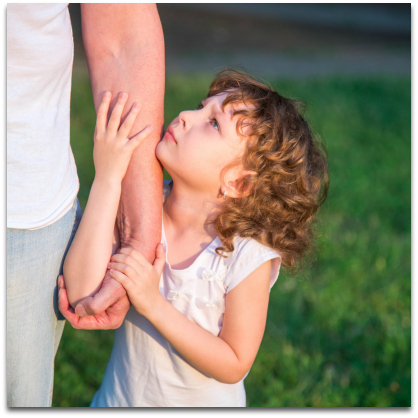 This is something I had such a hard time with when I first became a parent. I wanted to be that June Cleaver mom. I wanted my kids to live in a bubble where Mom and Dad never argued, siblings got along all of the time, the house was always spotless and constantly smelled of fresh baked goods, and life was just perfect.
This is something I had such a hard time with when I first became a parent. I wanted to be that June Cleaver mom. I wanted my kids to live in a bubble where Mom and Dad never argued, siblings got along all of the time, the house was always spotless and constantly smelled of fresh baked goods, and life was just perfect.
Yeah… then reality hit me! Mom and Dad do argue. We are married and it just happens. Siblings can get along at times but there are moments when they just won’t. I am a mom of three boys…. I clean non-stop but my house is rarely what I would call spotless. And I feel quite accomplished when I do bake, but I’ll be honest, I’m lucky if it’s once a month!
Life isn’t perfect. It never will be, and I don’t think it’s healthy to put our kids in that kind of bubble. It isn’t real. What happens when kids grow up and move out of ‘the bubble?’
I’m not saying throw your children to the wolves, but I am saying I think it is important to be real with our kids. When Mom and Dad have a minor spat, don’t go run behind closed doors to solve it. Work it out in front of them. They are learning while you all are resolving.
When siblings fight, don’t necessarily tell them to separate and drop it. Help them sort it out. Encourage your children to talk. This is a learning opportunity for them.
When you lock your keys in the car; when someone cuts you off in traffic; when you have a rough day at work… use all of these moments to show your anger in a healthy form. All of these instances will help your passive aggressive child to realize that anger is okay. It is okay to express what you feel. Using your emotions in a healthy manner will help your child to utilize theirs’ as well!
Encourage Your Child To Feel
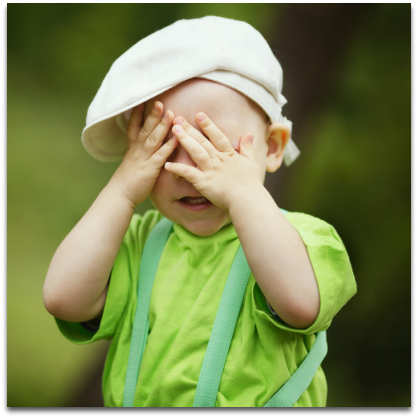 James Lehman at Empowering Parents sums up passive aggressive behavior into one statement: ‘acting in verses acting out.’
James Lehman at Empowering Parents sums up passive aggressive behavior into one statement: ‘acting in verses acting out.’
It broke my heart when I read this. It boils down to the fact that kids sometimes don’t know how to ‘feel.’ They don’t know how to express their feelings so they bottle them up and let them out in ways that most wouldn’t realize.
Our kids live in a world where they are told not to show emotion because it shows ‘weakness.’ It is so popular on many TV shows for kids to be ‘the tough one.’ Go back a few generations to shows like ‘Happy Days.’ Even ‘The Fonz’ showed emotion, but the ‘tough guys’ that are our children’s role models today do not.
It is not weak to be transparent. It takes a lot of courage. When you show who you are, how you feel, etc. to a world that doesn’t know and love you like your parents, that takes serious strength.
But teaching our kids that emotions are good, being who we are is good, and not being ashamed of who we are — that builds confidence. It builds resilient kids that can grow into great leaders!
We have to encourage our kids to ‘feel!’ I am raising boys, and I can’t count the times I’ve heard people tell them, “Don’t cry! You are a boy! Boys don’t cry!”
I’m their mother, and I’m here to tell you, they cry. They should cry! They are humans and have emotions…lots of them!
I encourage my boys to cry if they feel like crying. If you fall down and it hurt, it is okay to cry. If I played as rough as they do and fell down, I’d cry! So why shouldn’t they just because they are a different gender?
I encourage my children to let their emotions show and to embrace their feelings because it helps them to be genuine and embrace who they are. Feelings are part of who we are! I don’t want my kids to be passive aggressive because I encouraged them to bottle up their emotions.
This is the easiest step in the whole process. Simply encourage your children to let it all out. If they are angry, help them to express that anger in a healthy way. This could include exercising. This could include getting them a punching bag. Whatever works for your family, do it.
If they are sad, be that shoulder for them to lean on during those moments. If they are happy, be there to offer a high-five and partake in their happy dances! Just help them to express their emotions in a safe and healthy way!
The 2-Minute Action Plan for Fine Parents
Now, it is your turn to start with step one and have a quick self-evaluation.
- Do you show passive aggressive behavior in your daily relationships?
- Do you suspect your child may be showing passive aggressive behavior? What ‘level’ do you think your child is at?
- Do you express your emotions in a healthy form?
- Do you encourage your children to ‘feel’?
The Ongoing Action Plan for Fine Parents
If you realize your child is showing passive aggressive behavior, start by taking a deep breath. Passive aggressive behavior requires a lot of patience. It is not something that will be fixed overnight but take heart because it can be fixed!
After you have taken a few deep breaths and revved yourself up for this challenge, make a list of how you express your emotions. After you write this list, review it and see if there are any emotions you need to work on expressing in a different way or if you need to work on expressing emotion period. Then start to work on those areas.
And when your child is displaying passive aggressive behavior, sit down with them and ask open-ended questions that will hopefully encourage them to talk.
If they don’t open up right away, don’t get discouraged. Just keep working on expressing your feelings and using their passive aggressive behavior to open the door for communication.
Begin to encourage your child to feel their emotions. It is okay to ask them if something makes them happy, sad or indifferent. Just start pointing out emotions to them. If they won a big game, ask them, “How happy did that make you to win that? You did great!”
You may feel a little awkward at first but it does help them to recognize their emotions when they are happening!


Great job explaining! Thank you for taking the time to put all this together. It helps us relate, so much. I will incorporate much of this into my day to day life, with our boy. We’ve been doing some of it naturally, but there are nuances here that need to be taken seriously moving forward. Thank you again!
Thanks so much for this article. I’m 78 and for the first time I am admitting that I am passive aggressive! This is a tough one. I’m so hurt that our youngest of four children, now forty, is still so very passive aggressive!
It has been dreadful dealing with this behavior all these years! Our other three have matured and are wonderful productive adults who love and honor us.
I’ll work on this for awhile. I know how it developed in me! But I could not see how I influenced my son. I have always thought he was angry from birth because the cord was wrapped twice around his neck and he was oxygen deprived. Is that possible? . He always resisted me, even my affection – from the beginning.
Thanks again
I have lots to think about.
I can’t figure out if my son who was affected by bullying at college and work during summers and is now is reporting to me that his younger sister is doing passive aggressive behaviour towards him at home is telling the truth. He is believable when he describes what had occurred but then I wonder if he could be misinterpreting because he is suspicious of her . But then I listen to his sister and she is believable too (She is very defiant though and had stolen from me and lied and deceived me in the past, her brother knows about this). She says he should be kicked out of the house because he threatened her when he confronted her and she did not admit to things). He just wants her to stop but stays he could reach the end of his patience. They both expect me to solve the problem. I am anxious that I am not doing enough or the right things. I have no hard evidence between them. I told him he needs to let me handle things, he feels targeted and does not agree not to react at all, she says she is nuetral about his accusations not angry and not doing anything to get back at him. Are the accusations true? If not, why isn’t she admitting to me that she is angry at him? Is she really not doing the things he tells me that she is doing? He said it is hard to get evidence fog me to see. Are they both lying to me? Why can’t they just get along? I feel like i have to babysit them because it seems risky to leave them home together or even to allow my daughter to be home on her own since she may do damage to his things (but i work full-time and she gets home earlier than me). My son is looking for a job but still living at home in the meantime. I keep praying he finds a decent job so he can get his own place. What can I do now though? and what should I not do? (We have no friends or relatives that live nearby who can help in any way)
I have a friend who is struggling with her 10 year old daughter. It sounds very similar to Jessica Malloy’s situation. She is definitely experiencing puberty and her mom and she have some serious communication issues. Tasks are assigned and either not done or poorly done. Mother calls and she may or may not answer. Did you hear me? Yes. Why didn’t you come? Because I was doing something. Mother calls her disrespectful and openly questions her common sense. There are a lot of comparisons to her younger brother (5) who has “more sense” and awareness. I tell her not to do this and also tell her it’s her job as the parent to figure this out. I’ve known mother 20 years and know she and her family have shown the epitome of passive aggressive behavior. Mother encouraged no whining or crying. Mother expresses her feelings regarding child in a “poor me” or “my way or no way” method. I’m sending her this article. Hopefully she’ll read it and take the course.
My grandson 10 yo, has autism (Asperger’s). He has these past several months been very hard to deal with. Sometimes even physically attacking his mom and myself.
He’s been going to occupational therapy but it doesn’t seem to help in this area of our difficulty.
Please, if you have any advice?
This may be a question for your therapist, Binky… As you know, I (and most of the writers here) are just regular parents and are not qualified address specific situations like these. I wish you the very best in finding help for your grandson and his mom. You sound like a wonderful grandma and my best wishes are with you.
I am a behavior consultant and work with children with autism and other developmental disabilities. The parents have found behavior management extremely helpful. I would consider finding a behavior consultant in your area that your child bonds with and connects with in a positive way because it will go a long way in creating lasting and meaningful behavior change. I hope this helps.
I have been considering this kind of behavior as being lazy, the article has helped me to understand the behaviour pattern. I wasnt able to deal with rebellious, silent treatment.
After reading the article I can understand the situation better and will be able to deal in a positive manner avoiding control freak attitude in me.
Regards
So glad to hear that the article helped, Kritikka. You’re right… that’s one of the things about passive aggressiveness… it often comes disguised as laziness, defiance, and a whole lot of other things while at the core it is just a set of learned response that we can redirect with a little bit of effort. Good luck with your child… now that you know it for what it is, you can tackle it a lot more effectively!
My daughter is 10 and has been experiencing early signs of puberty. Anytime she showed signs of passive resistence, I blamed it on the hormones . I think this is a common mistake – to blame everything on puberty and hormones, and what can you do about that? So I would throw up my hands.
When I was her age I remembering dragging my feet and ignoring my mother’s requests constantly. She would simply give up and then sulk which I found unbearable. To this day we do not have a great relationship. I don’t want that with my kid. I want us to deal with each other in a real way, not try to get *at* each other.
Just an example: She is supposed to take her shower every night. Lately she has been dragging her feet, not wanting to. So last night I told her she could take it in the morning, but she would have to set her alarm and get herself up and moving without my help. She agreed and she did it. A little compromise goes a long way.
One more: She is allowed to be at home by herself for up to 2 hours. This only happens a couple times a week, but she’s given a to-do list while I am gone. If she wants this privilege, she must complete the tasks, or she will have to come with me. The tasks are always done when I get home.
I think identifying what is meaningful to your kid is key in avoiding passive resistence. Certainly once they get old enough to be more independent.
Thank you for this article – it really helped today!
Wow, those are great examples, Jessica. I particularly like the shower example because it shows how a very simple solution can prevent a pervasive niggling issue… I think you handled both these amazingly well.
I think most kids are passive aggressive at some point or the other… it is how we parents react to this that either nips it in the bud or leaves room for it to grow into a habit. Good on you for choosing the former! Wish you the very best… these may seem like small things, but these are the kind of choices we make that dictate how connected we are with our kids in their tumultuous teens and beyond (something that’s been on my mind a lot lately 😉 )
This is very helpful information. Just resliced it’s a long running pattern in my family, ugh, not to begin to shift it. Thanks for the assistance in deeper relization.
So glad it helped, Amber. That’s the thing with passive aggressiveness… it can very easily fly under the radar causing all sorts of annoying issues in relationships. Good luck with turning things around!
I thought this article did a superb job of defining the problem, but I didn’t get a lot of help on the solution. For instance when my child won’t stop doing what they are doing to answer me (this is constant) I already KNOW and they have already TOLD me that they feel that what they are doing is more important and that what I want needs to wait until they are finished and feel like answering. I’m not sure that I understand what to do next.
Hi Lisa,
In this instance if it really is just “what I want is more important than what mom wants” then consider this a teachable moment.
You are going to gain a ton of patience in these moments and this is a great opportunity to teach your child about emotions and relationships.
You could approach this as a great lesson in compromise to where you both get a happy result.
Or if this is a constant pattern of stubborn behavior (my children and I both have this blessed trait!) it is time to tell them how you feel.
A lot of times kids haven’t learned yet how to cope with emotions, and they honestly forget other’s feelings at times. So if it hurts your feelings or makes you angry when they refuse to help you, tell them. This is how they learn about healthy relationships. And then after you’ve informed them, encourage them to put themselves in your shoes. Give them a scenario where the tables were turned and ask them how they would feel. Then encourage them to help you find an agreeable solution.
A lot of times kids say no because they are tired, etc. My oldest has his first job Now. He will drag his feet to help after a shift at his job. We’ve communicated, and I agree to give him an hour off after he gets home before I ask him to do anything.
My middle son loves electronics. They were more important than helping me if needed. They are now an end of the day treat so it spares both of us being upset. We mutually agreed upon this.
With a little communication and compromise I feel certain you all will find a solution that makes you both happy.
Good luck! Parenting isn’t always easy but it is always so worth it 🙂